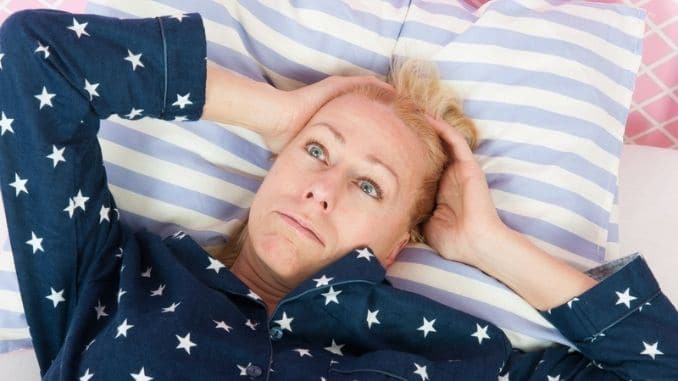
Unfortunately, many people don’t, which can be harmful to your overall health. Chronic sleep deprivation is linked to an increased risk of obesity, type 2 diabetes, heart disease, and even cancer. Did you also know that it could shorten your lifespan?If you struggle with sleep. There are Natural Remedies for Insomnia that may help you get better rest and improve your health over time.
Go without enough sleep and your brain also malfunctions. In a recent study, researchers from Michigan State University found that sleep deprivation doubled the odds of making mistakes, and tripled the number of lapses in attention. Should this occur when you’re behind the wheel, the consequences could be tragic.
About one in four Americans develop insomnia each year. This means they begin to struggle with falling asleep and staying asleep at least three nights a week for two to 12 weeks or longer.
If this sounds familiar, you may be frustrated about not getting enough sleep. Which typically only makes the problem worse. If you are struggling with insomnia, it’s always best to see your doctor, but meanwhile, consider the natural solutions below.
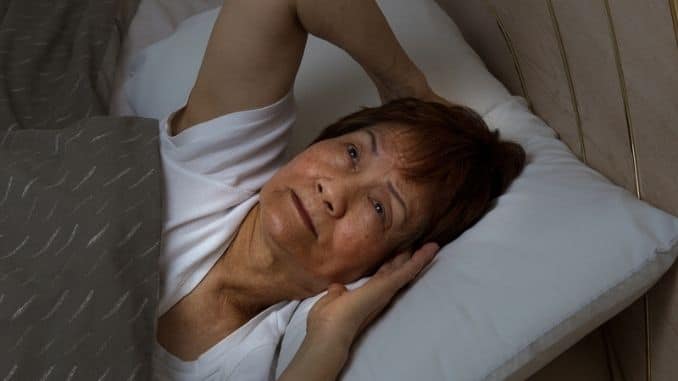
To Address Insomnia, Start with the Basics
First, if you’re having trouble sleeping, make sure that something obvious isn’t getting in the way.
Examples
- Your bedroom is too warm: Turn down the heat or install a cooler.
- Your bedroom is too light: Use window coverings or eye masks and keep lights off.
- You’re stressed before bed: Practice a stress-relieving activity before bed. Good options include journaling, meditation, yoga, listening to quiet music, and taking a warm bath or shower.
- You’re restless: Make sure you’re exercising at some point during the day.
- Your hormones are out of whack: Realize that exposure to blue light from cell phones, tablets, televisions, and computers messes with your sleep hormones. Keep these gadgets out of the bedroom and put them away at least 1-2 hours before bed.
- Your mattress is uncomfortable: If you’re waking up with a sore back, shoulders, or hips, it’s time to get a new mattress. Most mattresses last about 8 years before needing to be replaced.
- You have sleep apnea: This is a condition where you wake up frequently to restore your own breathing, but not enough to realize it. If you have headaches in the morning or you struggle with daytime sleepiness, even when you think you got a good night’s sleep, talk to your doctor about a sleep test.
- Your partner snores: Talk to your partner about using a pillow to elevate his or her head, then check with a doctor to find solutions. Often snoring is a sign of sleep apnea or sinus issues that may be treatable.
- You’re struggling with anxiety and/or depression: If you’re struggling with mental health issues, they can affect your sleep. Check with a licensed psychiatrist for help.
- Digestive issues: Eat an earlier dinner and avoid snacking for at least 3-4 hours before bed.
- Chronic pain: Arthritis and other types of pain can keep you awake. Talk to your doctor about potential pain relievers and consider alternative therapies like heat, massage, acupuncture, and meditation.
There are other potential causes of sleep problems and insomnia. Be sure to examine your life as a whole to see what may be affecting your sleep. Then address those issues to increase the odds that you’ll be able to rest.
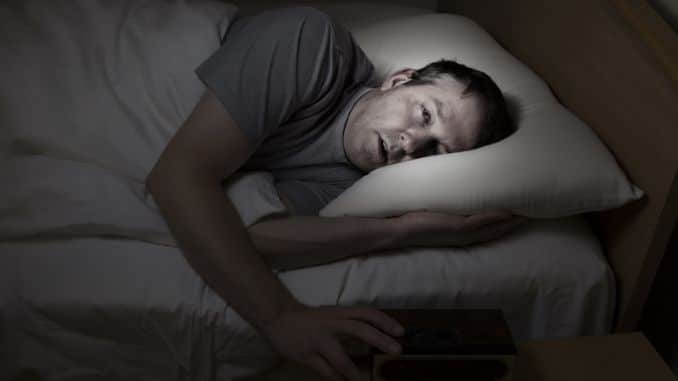
7 Natural Remedies for Insomnia
1. Yoga
Yoga isn’t only good for toning and stretching your muscles. It’s also potential sleep aid, as long as you choose slow, controlled movements (as opposed to other types of yoga that are more invigorating).
In a 2014 study, researchers recruited people aged 60 and older who were suffering from insomnia. They then split them into groups and had one group participate in 12 weeks of yoga classes that took place twice a week. The other group made no changes.
Results showed that compared with the controls, the yoga group showed significant improvements in a range of factors associated with sleep, including sleep quality, sleep efficiency, sleep duration, fatigue, general well-being, and more.
You can do yoga at any time of day, but then consider doing a 10-20-minute routine at night before bed to stretch muscles and relax.
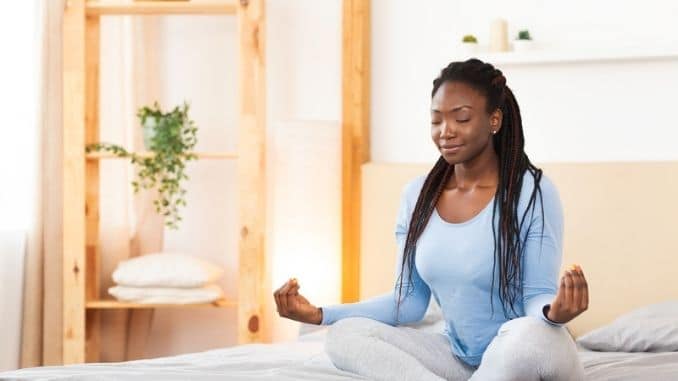
2. Magnesium
The body uses this mineral for several functions, including maintaining normal nerve and muscle function, maintaining a healthy immune system, and supporting a healthy heart. If you’re not getting enough magnesium in your diet, that could be one of the reasons you’re struggling to sleep well.
In a 2018 study, researchers found that dietary magnesium could have long-term benefits in improving insomnia. Scientists have also found evidence that magnesium deficiency is associated with sleep disorders—and that those disorders often go away when people get enough magnesium.
Your nervous system needs magnesium to relax, so find out if you’re getting enough. Those at risk for low levels include people with digestive diseases, diabetes, alcohol dependence, and older adults.
The recommended daily intake is 310-360 mg of magnesium for women and 400-420 mg for men. Good sources of magnesium include green veggies, nuts, cereals, meat, fish, and fruit. Research shows that about 500 mg of magnesium per day (possibly in supplements) may help improve sleep quality.

3. Light Therapy
Our bodies and minds are highly dependent on sunlight for daily functions. The sun wakes us up in the morning, and its absence helps us fall asleep at night. Exposure to the sun triggers the production of hormones that help us wake up, and vice-versa.
If you live in the northern latitudes where the sun is scarce during the winter months, or if you’re inside a lot without seeing the sun, that can cause sleep problems. This is where light therapy in the morning can help.
Try walking outdoors first thing in the morning for 30 minutes or so, or take the time during your lunch hour to do the same. Try to get outside more often in general, and open the drapes so the natural light comes in.
If that doesn’t help, try home light therapy units. You can buy these online and then simply turn them on and sit or work near them for 20-30 minutes. The key is to make sure your eyes are taking in the light, as the eyes are key. Simply exposing your skin will not have the same effect.

4. Valerian (in Supplements or Tea)
Valerian is an herbal tea known to reduce anxiety and help induce relaxation and sleep. It’s thought to affect levels of neurotransmitters in the brain linked to calm feelings—particularly, gamma-aminobutyric acid (GABA). It also may help relieve muscle tension and spasms.
Studies have been mixed on this one, but some have shown it to be effective against insomnia. In a review of about 18 trials, researchers found that valerian seemed to help shorten the amount of time it took participants to fall asleep. A typical dose is about 450 mg taken an hour before bed.

5. Lemon Balm (in Supplements or Tea)
Like Valerian, lemon balm can help relieve anxiety and induce calm, and may be particularly helpful for women during menopause. In one 2013 study, researchers found that menopausal women between the ages of 50-60 who used it before bed experienced reduced symptoms of insomnia. In that study, participants took a combination of valerian/lemon balm supplement.
Other studies have shown similar results, with this herb being particularly helpful for those who are stressed out. In one study, 81 percent of those taking a combination of valerian and lemon balm reported sleeping much better than those taking placebo.
For difficulty sleeping, try 300-500 mg of dried lemon balm, or 1.5 to 4.5 grams (1/4 to 1 teaspoon) of dried lemon balm herb in hot water to make tea.

6. Melatonin
Melatonin—also called the “sleep hormone”—is produced in the brain and helps control your sleep-wake cycles. If you’re not getting enough exposure to light, however, or if you’re spending too much time on your cell phone or computer at night, you may not be making enough melatonin to sleep well.
Start by adjusting your exposure to light (and blue light in gadgets), and if that doesn’t work, consider melatonin supplements. Just realize that these supplements affect individuals differently, and they can leave you feeling drowsy the next morning.
Melatonin supplements can be effective in for jet lag recovery, shift-work-related sleep problems, or insomnia. Try taking one to 10 milligrams (start with the lowest dose) 30-60 minutes before bedtime.
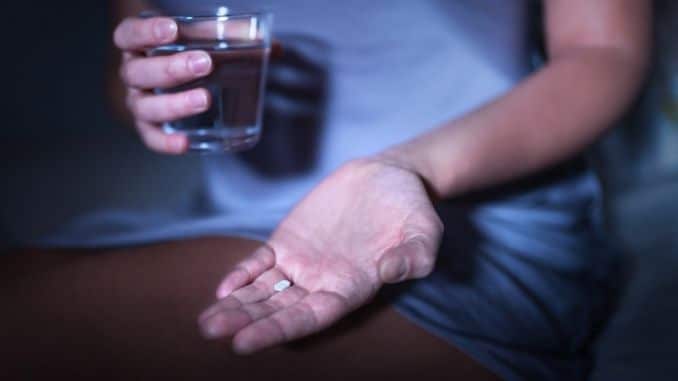
7. Lavender
Several studies have suggested that lavender can help improve nighttime sleep. It has natural relaxing effects on the body and can decrease blood pressure, heart rate, and skin temperature in people who inhale its lovely scent.
Scientists investigated the impact of lavender on sleep in 79 college students with sleep issues and found that those who used a lavender inhalation patch before bed experienced better sleep and improved energy the next day than those using a placebo patch.
Research on female college students suffering from insomnia also showed that using lavender aromatherapy before bed helped them fall asleep faster, reduce the severity of insomnia, and even ease feelings of depression.
All you have to do is inhale lavender before going to sleep. You can put some of the oil on a cotton ball and put it under your pillow, use a diffuser in your room, or try a lavender pillow spray. Lavender tea may also do the trick, or add several drops of lavender oil to your bath.

Conclusion
In conclusion, the quality and quantity of your sleep are incredibly important, and any continuous bouts of insomnia should be taken very seriously. Consider any of your lifestyle choices that might be impacting your ability to get a good night’s rest, and consult with your physician if problems continue.
Looking for a safe, natural way to get the sleep you need? Try our 14 day Sleep Improvement Quick Start Program here.

